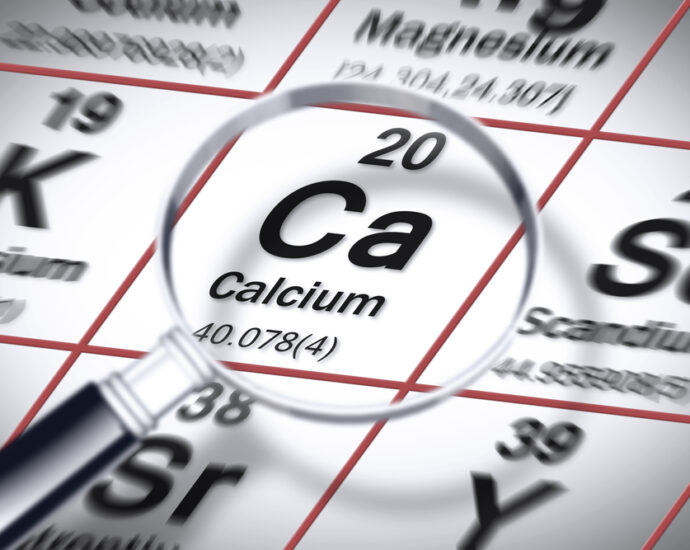Calcium is one of the most essential minerals in the human body. Known primarily for its role in building and maintaining strong bones and teeth, calcium is also crucial for proper muscle function, nerve signaling, and heart health. Despite its importance, many people worry they may not be getting enough, especially if they avoid or cannot consume dairy products. Fortunately, there are multiple ways to meet your calcium needs without dairy.
Page Contents
Why Is Calcium Important for Health?
- Bone and Teeth Health
Calcium is the primary building block of bones and teeth, making up about 99% of the body’s calcium stores. It is vital during periods of rapid growth, such as childhood and adolescence, and it helps maintain bone density throughout adulthood. Insufficient calcium intake can lead to weakened bones, increasing the risk of fractures and conditions like osteoporosis.
- Muscle Function
Calcium plays a key role in muscle contraction. When a nerve stimulates a muscle, calcium is released to help the muscle fibers slide past each other, enabling contraction. Without adequate calcium, muscle function can become impaired, leading to cramps and spasms.
- Cardiovascular Health
Your heart is a muscle that relies on calcium to function properly. Calcium helps regulate heartbeat and is involved in the contraction and relaxation of the heart muscle. It also plays a role in blood clotting, another crucial function for cardiovascular health.
- Nerve Transmission
Calcium ions act as messengers in the nervous system. They facilitate the transmission of nerve impulses by aiding the release of neurotransmitters, the chemicals that transmit signals between nerve cells.
- Hormonal Secretion and Enzyme Function
Calcium is involved in the secretion of hormones and enzymes that are necessary for various bodily functions. This includes processes related to digestion, metabolism, and even immune responses.
Recommended Daily Intake of Calcium
The recommended daily intake (RDI) of calcium varies by age and life stage:
- Children (4-8 years): 1,000 mg
- Adolescents (9-18 years): 1,300 mg
- Adults (19-50 years): 1,000 mg
- Women over 50 and men over 70: 1,200 mg
Meeting these needs is crucial for long-term health, but many people fall short, particularly those who avoid dairy.
Can You Get Enough Calcium Without Dairy?
Yes, it is entirely possible to meet your calcium needs without consuming dairy products. While dairy is a rich and easily absorbed source of calcium, many plant-based foods, fortified products, and supplements can provide sufficient calcium.
Several plant foods are naturally high in calcium. These include:
- Leafy Greens: Kale, collard greens, and bok choy are excellent sources.
- Cruciferous Vegetables: Broccoli and turnip greens contain moderate amounts.
- Legumes: Beans, lentils, and chickpeas contribute calcium and other minerals.
- Nuts and Seeds: Almonds, chia seeds, and sesame seeds are particularly rich.
- Seaweed: Some types like wakame and kelp are high in calcium.
- Tofu and Tempeh: These soy products, especially when made with calcium sulfate, are excellent sources.
- Fortified Foods
Many non-dairy foods are fortified with calcium:
- Plant Milks: Almond, soy, oat, and rice milk often have calcium added to match or exceed dairy levels.
- Breakfast Cereals: Many are fortified and can provide 100-200 mg of calcium per serving.
- Orange Juice: Fortified versions offer a substantial calcium boost.
- Nutrition Bars: Check labels for calcium content.
- Supplements
If dietary sources are insufficient, calcium supplements can help meet your needs. There are two main types:
- Calcium Carbonate: Requires stomach acid for absorption and should be taken with food.
- Calcium Citrate: More easily absorbed and can be taken with or without food.
Before starting supplements, consult with a healthcare provider to determine the appropriate dose and type, especially if you have health conditions or take medications.
Tips for Maximizing Calcium Absorption
- Get Enough Vitamin D: This vitamin is essential for calcium absorption. Sunlight exposure and foods like fatty fish, eggs, and fortified products can help.
- Limit Oxalates and Phytates: Compounds found in spinach, rhubarb, and some beans can hinder calcium absorption. Vary your sources to minimize their impact.
- Spread Intake Throughout the Day: The body absorbs calcium better in smaller amounts. Aim for 300-500 mg per meal.
- Avoid Excess Caffeine and Sodium: Both can increase calcium excretion in urine.
Health Risks of Calcium Deficiency
Chronic low calcium intake can lead to:
- Osteoporosis: A condition where bones become brittle and fragile.
- Rickets: A childhood disease causing bone softening and deformity.
- Hypocalcemia: A condition marked by low blood calcium levels, leading to muscle spasms, tingling, and cardiac issues.
Conclusion
Calcium is essential for many bodily functions beyond just bone health. While dairy is a convenient source, you can absolutely meet your calcium requirements through a balanced diet rich in plant-based foods and fortified products. Supplements can also be an effective option when used appropriately.
Understanding your dietary needs and making informed food choices ensures that your body gets the calcium it needs, dairy-free or not. If you have specific health concerns or dietary restrictions, consult with a healthcare provider or registered dietitian to create a personalized calcium intake plan that supports your overall well-being.
READ MORE: Do I Have To Drink Milk To Get Calcium?
Sources:
https://healthsurgeon.com/nutrition/12-plant-based-calcium-rich-foods/
https://blog.walgreens.com/wellness/vitamins-supplements/calcium-function-in-the-body-what-does-it-do.html#:~:text=The%20movement%20of%20calcium%20in,and%20strength%20of%20your%20heartbeat.
https://ods.od.nih.gov/factsheets/Calcium-HealthProfessional/
